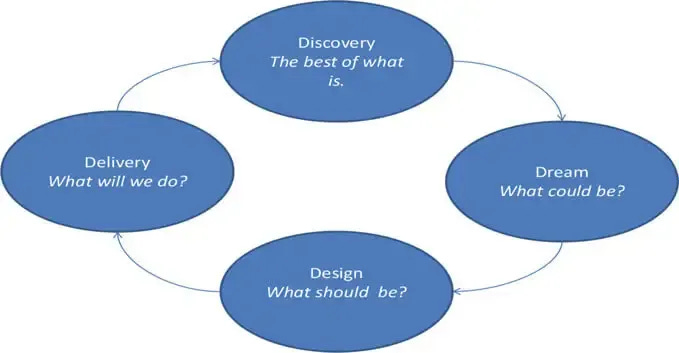It’s almost Halloween here in the US. Fittingly it rained in San Francisco, giving the city a nice rinse (which it definitely needed) and leading humans and puppies alike to don their rain gear.
While Lancaster gave me a look indicating wearing his raincoat was the worst thing ever, a tourist left the hotel around the corner from where we live and started dashing down the street. We caught up with him two blocks later. It turns out he had lost his tour group. Whether he overslept or simply took too long to get ready, we don’t know. What was apparent in the displeased faces surrounding him was that he had let down his fellow travelers. Similar to Lancaster, they were truly pissed off. Their fellow traveler had delayed their adventure.
As a product leader, you are directly leading other product managers and indirectly defining the path for cross functional colleagues. If your leadership style alienates others, you too could lose your “tour group”.
Throughout my newsletter and course on People-First Product Leadership (sign up for the next cohort in Dec 2023), we have explored many types of people-first leadership characteristics including…
Soft skills in Redefining Product Leadership: What We Can Learn from Rock Stars
Collaboration in Is product development a competitive sport inside your company?
Risk taking in Embrace risk-taking (and lily pads) to unlock growth
Positive leadership in You don't need to be loud (or nasty) to lead
What I have come to learn by reading lots of articles, always walking with a podcast, writing this newsletter, and following guidance from my career coach - leadership is not just about getting ahead, it is about how many people want to take the journey with you - e.g. how many people want to be in your tour group.
The other AI, appreciative inquiry
While artificial intelligence is seeping into the way we work and live, appreciative inquiry is a collaborative, strengths-based approach to introducing change in an organizations. The positive nature of appreciative inquiry resonated with me. There are so many times an organization seeks to “fill a gap”, whether real or imaginary. I believe often the best way to “fill a gap” is to look within. Instead of hiring a “star” from another organization who has done the “exact same thing”, whenever possible I favor sourcing and growing internal talent. Identifying who has the desire, attitude, and approach to bring people together collectively towards the future vs. simply cutting & pasting a person who did something similar elsewhere. The other AI promotes such a model by looking for the positive instead of the negative (or gaps).
Often companies and product leaders laser in on “fixing what’s wrong”— a deficit-based approach. This type of thinking can be infused with bias and a belief that there is only one “right” way to do something. Instead with appreciative inquiry, the focus is on a strengths-based or affirmative approach which leans on what’s working, what it’s like when a team or organization is at its collective best, and how to move towards enabling everyone to be their best self.
The four phases are:
Discover: Hone in on what has enabled past successes, uncovering strengths, and shifting away from deficit-focused thinking.
Dream: Unlock creativity and possibilities by imaging potential positive futures, representing multiple perspectives, opinions, and understandings.
Design: Co-create a shared future vision by bringing together individual aspirations to enable the collective team to have real, positive potential.
Destiny: Construct the positive future and make a difference “through innovation and action”, encouraging momentum, and asking questions which emphasize the positive core of the team or organization.
In none of the phases is the leader going through the exercise alone. Instead there is power in looking across the group (Discover), bringing together multiple viewpoints (Dream), co-creating (Design), and enabling the team to build the future (Destiny).
Appreciative inquiry reminded me of Simon Sinek’s book Leaders Eat Last: Why Some Teams Pull Together and Others Don't. He writes that the most successful leaders are those who are able to create a sense of shared purpose and belonging among their team members. He calls this "circle of safety". I have found focusing on the positive potential has a higher likelihood of enabling a team to come together, to feel safe and thrive vs. always going on about what is missing. And, by creating such a space, I feel ok to say I don’t have all the answers. To admit, I’m not perfect. That I - and all of us - could benefit from helping each other to create the outcome (Destiny) we seek.
The more I exchanged my "essential hat", for the question, "can you help me?", people around me stood taller, leaned in more, accomplished more. - Simon Sinek
Inspect the work, not the person
Chip Conley was the founder of hospitality chain Joie de Vivre. After the business was sold, he served as a strategic advisor to the founders of Airbnb. Aga Bajer interviewed Chip on a recent podcast. He is a strong advocate for mentorship, and believes mentorship can help people to navigate life transitions, share wisdom, and learn from each other - bringing value to both the mentor and the mentee.
Upon arriving at Airbnb, Chip acknowledged he had a lot to learn - and a lot to give. Instead of sticking to only what he knew or jumping ship and ‘leaving his tour group behind’ as the founders were much younger and had less hospitality experience, he appreciated their work and the opportunities they could create together, by learning from each other. He leaned into Airbnb’s new technology driven approach to uncover what his “wise eyes” could learn from their “fresh eyes.” He focused on the positive, not the negative. The end result being he was instrumental in the transforming Airbnb from a fast-growing start-up to one of the world's most valuable hospitality brand.
I have saved the podcast to listen to again and again. It reminds me, even though I am the leader of a product team, it’s ok to not have all answers. I’m not a “perfect” leader nor do I think a “perfect” leader exists. Instead I focus on how we can better and stronger together. For example, when someone adds a comment to a document I’ve written, I reflect on the feedback and turn it into a Q&A for others to reference as well. Even though I led the roll out of our product development lifecycle, I repeat - repeat - repeat that it is a living, breathing thing which will continually be revised based on learning, application, and new technologies and approaches. And, I fully own the revisions are much better than what was originally created!
Another podcast I have on repeat is from the web3 with a16z series called "Communicating in Crypto, and Beyond". I went in thinking of all the differences that would be discussed, guessing there would be a section on how DAOs (decentralized autonomous organization) are changing the structure of organizations and communities. A DAO is governed by its members using a set of rules encoded on a blockchain. It’s not top down or bottom up. It’s everyone together.
Instead Matt Abrahams, author of Think Faster, Talk Smarter: How to Speak Successfully When You're Put on the Spot, called out principles that transcend today’s world into the crypto realm. Similar to Chip Conley, he noted there was value in blending what we know with what is emerging. The three main points he highlighted were:
Importance of clear and concise communication. Crypto is a complex and rapidly evolving field, and it can be difficult to keep up with the jargon and concepts. It is essential to communicate clearly and concisely to be understood. [Think of all the times in your work life you wished for someone to just speak simply!]
Need to be aware of the different audiences you are communicating with. The crypto space is home to a wide range of individuals. Each audience has their own unique needs and expectations, and it is important to tailor your communication accordingly. [Sound like your workplace? Definitely reminded me of mine.]
Importance of being authentic and transparent. Trust is essential in the crypto space, and people are more likely to trust those who are honest about their own knowledge and limitations and willing to admit when they don't know something. [Nice alignment with the earlier parts of this newsletter.]
Remember these points when you’re stepping into a new situation. Think about the work and what you’re seeking to accomplish - why you’re there. Embrace your imperfections and invite others to do the same. Your unique perspective and willingness to learn will build trust and create a more innovative and impactful future for all.
Thinking like gardeners (and winemakers)
If you’re read this far, I hope you know you are enough. You have the power to create a more positive and impactful future. Try out the principles I've shared above. If they're not right for you, that's okay. But don't give up on yourself. You are capable of great things.
A colleague shared the Happiness Lab with me. Around the same time Chief had an article about the pitfalls of perfectionism which referenced author Ethan Kross who appeared on the Happiness Lab podcast. The key point being:
The first step toward believing you are enough is examining why you didn’t think you were enough in the first place. Kross suggests there is no evidence that we can stop negative thoughts from entering our minds, but once activated, instead of trying to ignore them, we can control what we do with them.
Instead of letting the negative thoughts cloud your mind, you can choose to zoom out and minimize negative thoughts, or replace them with other thoughts. Sound easier said than done? Try this out —> think less like an engineer and more like a gardener (or a wine maker). Stay with me…
Gardeners and wine makers think about growth and nurturing. They think in terms of networks and ecosystems that fuel and work together. Success or failure does not depend on them alone, it depends on the connections across the environment they are creating. With this train of thought…
Our success or failure depends less on individual entities than the connections between them. The task of leadership is to make decisions with full knowledge that many will be wrong and that you will need to make them right.
In the same manner if you give an ambitious gardener or winemaker a simple task, they may do it but their satisfaction level will be low. The same thing applies to ourselves and the teams we lead. Jobs that are complex, challenging, and interesting are correlated with higher degrees of happiness at work. To get the most out of your team (and your garden or wine), consider the following questions:
How well do you know your people, what’s meaningful to them, and how their performance is linked?
To what extent are you able to adapt your style and behaviors to promote passion that does not lead to pathos?
You ask your people to commit to the company’s purpose — how committed are you to supporting their pursuit of meaning in their work?
As a leader it’s your job to remove obstacles and friction points for your team (imagine you’re cleaning the way for a curling stone). Making progress — even a tiny amount — will boost their (and your) motivation and happiness significantly.
Enjoy!











Great article. In my humble opinion, the big part of leaders' role (as a vessel for passing on information) will be meaningless over the next 3-5 years.